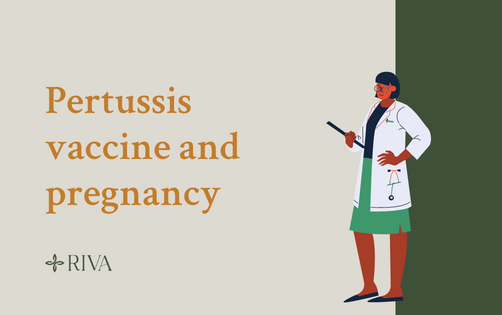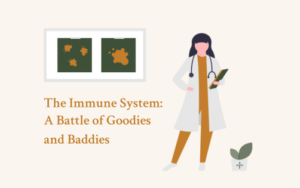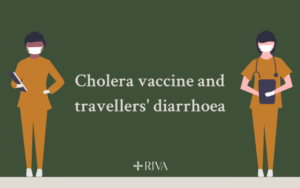What is Pertussis?
Pertussis, also known as whooping cough, is a highly contagious respiratory illness caused by the bacteria Bordetella pertussis. It is characterised by severe, prolonged coughing fits that can make it difficult to breathe. The name “whooping cough” comes from the distinctive “whoop” sound that is often made when a person with the illness tries to catch their breath after a coughing spell.
While it can affect people of all ages, it is particularly dangerous for infants, who are at risk of severe complications or even death if infected. Whooping cough rates have significantly increased in recent years and babies that are too young to start their vaccinations are at greatest risk.
What causes Pertussis?
Pertussis is caused by a type of bacteria called Bordetella pertussis. The bacteria attaches to the cilia that line part of the upper respiratory system. The bacteria release toxins which damage the cilia and cause swelling to the airways. The ‘whoop’ is the sound of the gasp though the swollen airways.
What are the Symptoms of Pertussis?
In young children, whooping cough can cause coughing spells that last for several weeks or even months, along with other symptoms such as a runny nose, low-grade fever, and irritating cough. The cough then develops into long bursts of severe coughing and choking, followed by “whooping” on intake of breath and vomiting.
In older children and adults, whooping cough may present with milder symptoms that can be mistaken for a cold or flu. However, even in these cases, the illness can be very contagious and may lead to complications such as pneumonia or difficulty breathing.
It can be difficult to recognise the disease in young babies as they do not always whoop, but can instead hold their breath for short periods following the coughing spasm. They may turn blue as they are coughing so much they cannot take a breath. Most babies with whooping cough will need hospital treatment. Complications are most common in infants under 6 months old. These include weight loss due to repeated vomiting, pneumonia, brain damage due to oxygen deprivation and in some cases, death.
Why are Newborn Babies Vulnerable to Pertussis?
Newborns are particularly vulnerable to serious complications from pertussis as they are too young to be vaccinated. Vaccinating babies at birth does not offer newborn babies the best protection against pertussis because a newborn’s immune system does not respond well to the first dose of pertussis vaccine at this age and vaccination does not offer immediate protection, as an immune response takes several days to develop in response to the vaccine.
In the UK babies are offered protection from whooping cough (the 6-in-1 vaccine) as part of their routine vaccinations at 8, 12 and 16 weeks of age. They require at least 2 doses to give high levels of protection.
Why are Pregnant Women Advised to Have the Pertussis Vaccine?
The good news is that there is a vaccine available that can protect both pregnant women and their unborn babies from pertussis. The vaccine is called Tdap (tetanus, diphtheria, and acellular pertussis), and it is recommended for all pregnant women, ideally from 16 weeks up to 32 weeks pregnant. It takes about 2 weeks for the antibody levels to peak. However, the vaccine can be given right up until the woman goes into labour.
When a pregnant woman receives the Tdap vaccine, she develops antibodies against pertussis that are passed on to her unborn baby. It is therefore an effective way to for a mother to protect her baby from developing whooping cough in the first few weeks of their life. The immunity the mother gets from the vaccine passes through the placenta to her baby and provides passive protection for the newborn until they are old enough to have their routine whooping cough vaccination at 8 weeks old. Small amounts of pertussis antibodies may also be transferred to the baby through breast milk.
In addition to vaccination, other measures can be taken to prevent the spread of whooping cough, including staying away from others if you are sick, covering your mouth and nose when coughing or sneezing, and washing your hands frequently.
Why is the Pertussis Vaccine Recommended in Every Pregnancy?
It is important to note that it is recommended that women receive the Tdap vaccine during each pregnancy, even if they received the vaccine in the past, to ensure maximum protection for both mother and baby.
It is also important to ensure that other household members, including partners, siblings, and grandparents, are up-to-date on their pertussis vaccination to provide additional protection for the newborn.
Is the Pertussis Vaccine Safe?
It is understandable for women to worry about receiving vaccines during pregnancy but there is no evidence that the whooping cough vaccine is unsafe for the mother or her unborn child. A large study of around 20,000 vaccinated women found no evidence of increased risk of stillbirth, low birth weight, pre-eclampsia or any other pregnancy complications.
The pertussis vaccine is not a ‘live’ vaccine so you cannot develop whooping cough from the vaccine.
Mild side effects are the vaccine are common, such as swelling, redness and tenderness at the vaccine site.
Immunisation Training for Nurses and Healthcare Support Workers
At RIVA we are dedicated to empowering those on the frontlines of immunisation by offering ongoing training and support through our immunisation courses delivered by passionate educators. We take great pride in being at the forefront of discussions around immunisations. By working with experienced and innovative professionals we can ensure that you receive the most up-to-date immunisation training for nurses and healthcare support workers possible.





